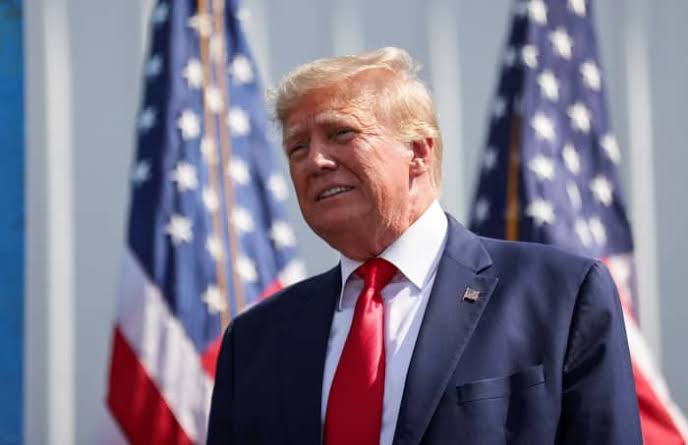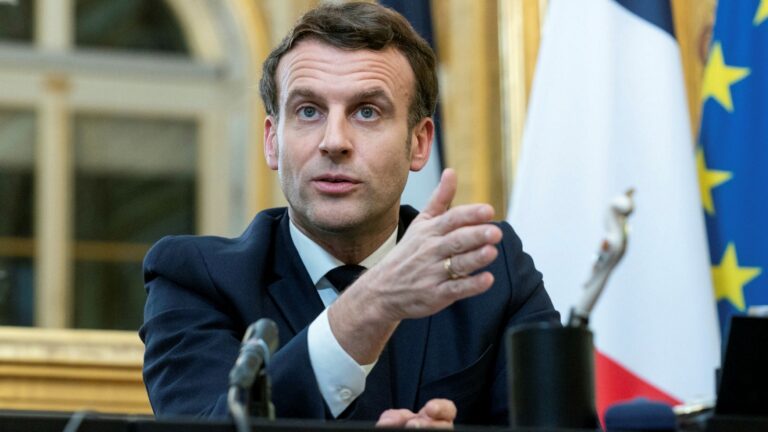
When a real estate developer becomes president of the United States, it’s not unexpected for American foreign policy to be infused with a significant focus on real estate development. This is likely the most significant takeaway from Donald Trump’s remarkable suggestion that the US should seize Gaza and transform it into a destination for people worldwide to enjoy – a “Riviera of the Middle East,” as he described it. This also raises the ongoing question that has persisted since Trump began his high-level engagement in American politics. Should we interpret Trump’s plan for Gaza, which involves resettling over two million Palestinians and claims US “ownership” of disputed territories, as serious or literal? Both or neither? Trump’s proposal directly contradicts the deeply held aspirations of the Palestinian people and has been swiftly rejected by the Arab nations that would need to be involved in relocating those affected by the conflict in Gaza.
It has also incited strong backlash from the global community, along with discontent from Trump’s domestic opponents in the Democratic Party. “Transforming war-ravaged land into a Trump golf resort doesn’t represent a peace plan; it’s a disrespect,” stated Democratic Congressman Troy Carter from Louisiana. “Responsible leaders seek viable solutions, not real estate ventures.”
Even some of Trump’s most loyal Republican supporters appear hesitant about the president’s proposal for US forces to take control of Gaza, clearing debris and disposing of unexploded Israeli munitions. “I believe that most South Carolinians would likely not support sending American troops to occupy Gaza,” said Lindsey Graham, who serves South Carolina in the Senate, on Wednesday. “That could present some issues, but I’m willing to keep an open mind.”
Senator Rand Paul from Kentucky was even more straightforward. “I was under the impression we voted for an America First policy,” he stated on X. “We shouldn’t even consider yet another occupation that would waste our resources and endanger our soldiers.” Paul points out a clear contradiction in the initial weeks of Trump’s administration. While Trump has reduced US foreign aid and pledged to focus on domestic priorities, he has also mixed in comments suggesting American expansionism. His ongoing interest in purchasing Greenland is serious, according to officials, and his notions of making Canada the “51st state” and regaining control of the Panama Canal are no longer dismissed as humor.
Now, Trump, who has been one of the strongest critics of the US invasion and reconstruction of Iraq, is proposing a new nation-building endeavor in the Middle East. Trump’s most recent proposal, while shocking to some, shouldn’t come as a total surprise. He mentioned “cleaning out” Gaza and relocating Palestinians during discussions with reporters aboard Air Force One just days after taking office. During his presidential campaign, he told conservative radio broadcaster Hugh Hewitt that Gaza could become “better than Monaco,” but expressed that the Palestinians “never took advantage” of their “prime location in the Middle East.” This isn’t the first time Trump has regarded a challenging foreign policy issue as an exciting business venture.
During his 2018 meetings with North Korea’s Kim Jong Un, Trump expressed excitement about the nation’s “great beaches,” envisioning them hosting the “best hotels” in the future. Those ambitious ideas have been set aside – and Trump’s vision for Gaza, which would necessitate a considerable investment of American lives and resources at a time the country is reducing its overseas commitments, will almost certainly face a similar fate.
However, Trump’s Gaza proposal does indicate a significant change in America’s dedication to a two-state resolution regarding the Palestinian issue. One could interpret the American strategy in a favorable light, aiming to disrupt the Middle Eastern powers and compel them to invest more of their own resources and political capital into establishing a lasting resolution for Gaza. Yet, such a strategy brings inherent risks. The fragile multi-step ceasefire between Israel and Hamas is at stake. Palestinians may interpret Trump’s remarks as a signal that the US is uninterested in achieving enduring peace, while hard-line Israelis, who form a crucial faction of Benjamin Netanyahu’s governing coalition, might view it as Trump’s approval for further increasing Israeli settlements.
Arab countries – some of which collaborated with the first Trump administration to normalize relations with Israel through the Abraham Accords – may question whether Trump can be a dependable negotiator in a potential second term. There is ample evidence showing that Trump’s focus can shift abruptly. Ultimately, he may abandon all efforts to negotiate a sustainable peace in the Middle East, blaming the Palestinians and their Arab allies for what he might perceive as their rejection of the chance for a better life freed from historical conflicts.
Next, it’s time to return to trade disputes with Canada, real estate developments in North Korea, extraction operations in Greenland, or any other issue that doesn’t create divisions within his own party or demand resolving age-old conflicts rooted in deep-seated historical grievances.



